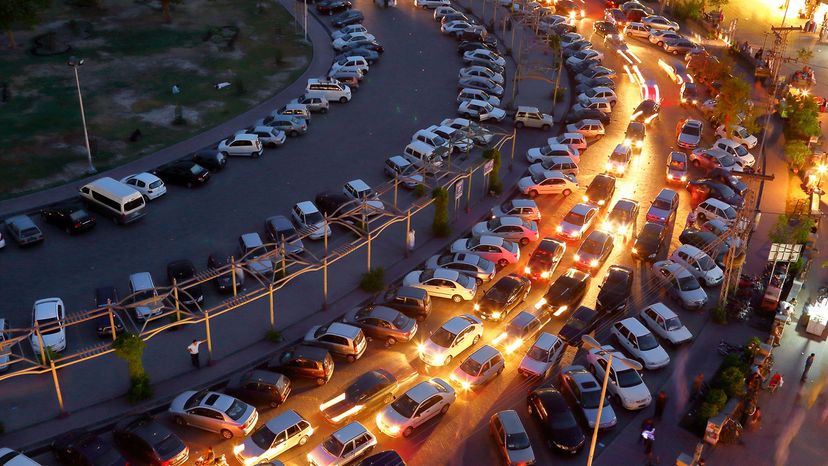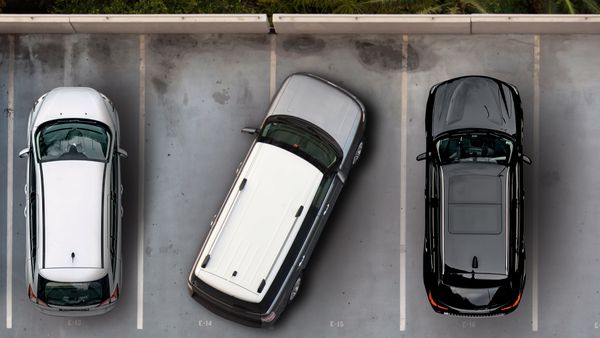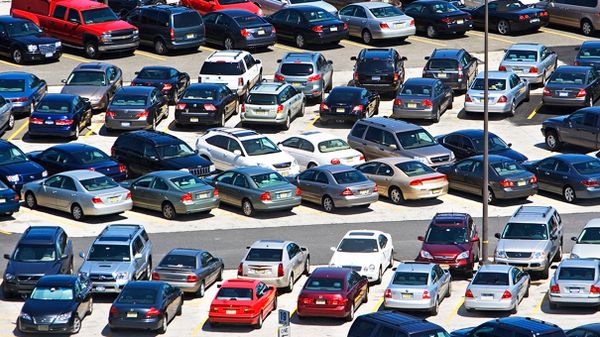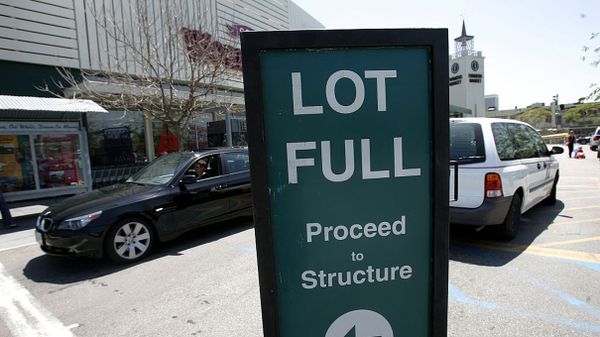OK, so that's the mathematical side of the story. But is there a parking lot strategy that better accounts for the quirks of real people?
"It is important to note this simple fact: The success of my parking strategy is, in part, dependent upon which parking strategy the other drivers select," emails Andrew Velkey, an associate professor of psychology at Christopher Newport University in Virginia. "It is an excellent application of Game Theory (e.g. the Prisoner's Dilemma). My 'best' strategy is only better if enough other drivers select one of the other alternative strategies. If everyone tried to play the same parking strategy, it would no longer be optimal."
Velkey notes that most people spend too much time looking for the "closest" spot. Ideal parking spaces (like right in front of your final destination) are usually unavailable.
"Time and perceived scarcity are the two biggest factors that affect parking strategies. People will spend time looking for a parking space and incur a travel-time cost from their vehicle to their final destination after they have parked their car. It appears that people are often attempting to reduce the travel-time cost and often incur a greater acquisition time cost as a result," he says. "It's most interesting to note that people will try to get a parking spot that is closest to the door of the gym/exercise club they are about to enter."
To answer our parking lot question, Velkey referred to a 1998 paper published in the journal Transportation Science "where they determined that the optimal strategy was to randomly pick a row and go to the closest apparent space in the row ('Pick a Row, Closest Space (PRCS)'), rather than driving up and down rows looking for a closer spot ('Cycling')."
In other words, the time saved in finding a spot made up for the longer time spent walking to the front door. It wasn't a huge time savings though. In that model, the expected time to the front door from the spot using the PRCS method was 61.31 seconds; with the Cycling method it was 70.70 seconds.
Velkey says those few times where we do score a spot at the front become very memorable to us. But "perhaps even more memorable are the times when we park our cars and come across a space right in front on our way to the entrance of the destination – we will employ a counterfactual 'if I had only driven around more' process when we notice these spaces we 'missed,'" he says. "As a result, people will over-predict both the likely availability of these spaces and their own likelihood of obtaining these spaces."



